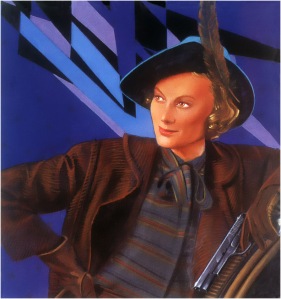This all started because I am a football fan, or soccer as it is known in some parts of the world, and the Women’s World Cup is currently underway in Canada, screened here in England later in the evening. I watched the recent Norway v England game, the coincidence not being lost on me that in my two novels, The War Wolf and For Rapture of Ravens, it is very much a case of Norway v England, and later commented on the game to an acquaintance. “Oh I didn’t watch it,” he admitted, “there’s something about women’s football that I can’t get my head round!”
“Really?” I asked somewhat puzzled. “It’s quite entertaining and the women are getting technically very good at the game now.”
“No, it’s not for me.” He insisted shaking his head and looking uncomfortable.
Now I am not sure if this means that this particular person is suffering from Gynophobia, I’m not a psychiatrist after all, but I did wonder if he was unsettled by the thought of women proving quite competent in an arena of sport traditionally thought of as a ‘man’s game’? The same could be said, I suppose, for men reacting in a similar fashion to women pursuing careers in science, engineering and other ‘men heavy’ occupations. I know it happens, men feel uncomfortable with it. Intimidated even. Perhaps even afraid?
 |
| Pat Savage by Ron Miller |
So what about my female characters then? I’ll start with Mildryth from the Sorrow Song Trilogy. She’s a Saxon woman of the theign class who has already been through pain and tragedy. Her husband and son were murdered by Tostig Godwinson, then Eorl of Northumbria, but she finds it within herself to live life again. More than that she refuses to simply sit and watch the world go by in her pitiable state but determines to grasp what happiness she can and make the most of it. That is how she comes to meet Coenred, a warrior of similar class and inspire him to love her.
Mildryth is strong because she refuses to surrender to despair even when faced with the most bitterest of personal tragedies. There is more than one way to display your strength, however, and she gets several other opportunities to do this. One such opportunity comes from a chance meeting with another man, Wulfhere, all round bad egg. He has nothing but dark designs for Mildryth but she stands up to him at every occasion and leaves her mark upon his face. She is courageous before despair and brave before villain like Wulfhere. I found her engrossing to write.
Another of my female characters is very different but no less as resourceful and self-reliant as Mildryth. Grace’s workd is the 1930’s Britain of Eugenica into which she has been born disabled and abandoned. To begin with she is insular, having learnt by experience that others care little for girls like her. Indeed, the Eugenics movement is at its height in Eugenica and the disabled are the subject of active persecution and incarceration. Grace at first simply goes with the flow, not objecting to being taken into a state run asylum because she has no hope for the future, no expectation of anything better, and no belief in humanity.
It is while she is in the Spring Bank facility that Grace comes into contact with other people like herself and, after realising that they hold no ill will towards her, slowly begins to form relationships with them. One of the very unpleasant consequences of eugenics was the rise of a negative application of its principles, that is, dysgenics. This version of racial betterment argued that the deformed and the infirm were better off segregated at first and then dead. Grace responds to this danger to her life by softening herself emotionally to help her new found friends. Fortunately her years of hard living prove very useful in helping her take the lead in the fight against their oppressors.
Grace is still a character in the making but I am thoroughly enjoying writing about her. She is not the same as Mildryth but they share similar traits, the kind of characteristics that some men might find intimidating even. Neither of them looks to anyone else to get them out of their troubles. Each of them works to their own ends but they know, or at least Mildryth does and Grace has yet to learn, that compromise can be beneficial. Sometimes it does not hurt to let someone else do something for you. It is not a case of surrendering independence or become reliant on others, it is a way of including that most fascinating, rewarding, exasperating, and life affirming people into your world.
Several female readers have told me that they like the way I have written Mildryth, well to be honest no one has told me that they do not, but I wonder if both she and Grace would be anything like what they are if I suffered from Gynophobia?





